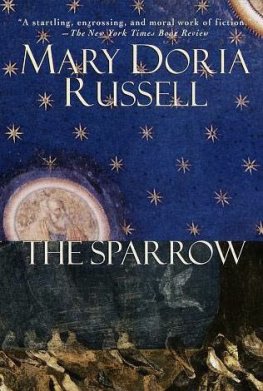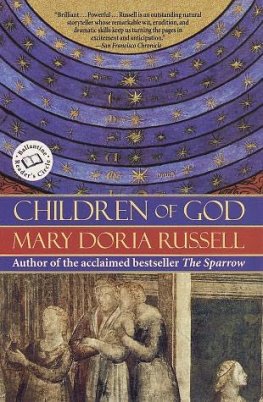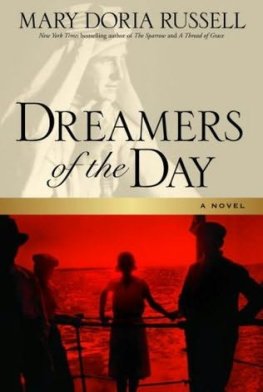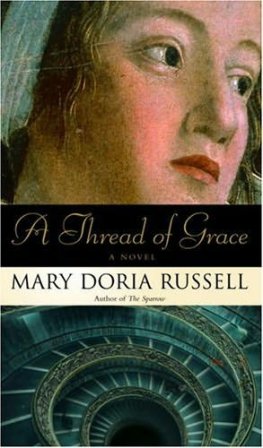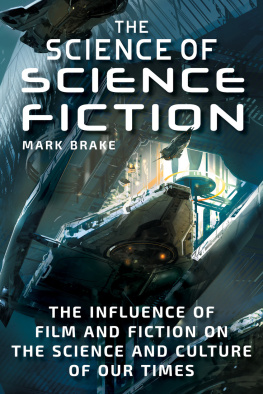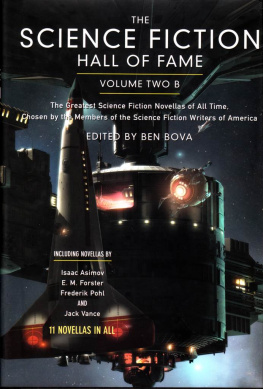Mary Russel - The Sparrow
Here you can read online Mary Russel - The Sparrow full text of the book (entire story) in english for free. Download pdf and epub, get meaning, cover and reviews about this ebook. City: New York, year: 1996, publisher: Fawcett Columbine, genre: Science fiction. Description of the work, (preface) as well as reviews are available. Best literature library LitArk.com created for fans of good reading and offers a wide selection of genres:
Romance novel
Science fiction
Adventure
Detective
Science
History
Home and family
Prose
Art
Politics
Computer
Non-fiction
Religion
Business
Children
Humor
Choose a favorite category and find really read worthwhile books. Enjoy immersion in the world of imagination, feel the emotions of the characters or learn something new for yourself, make an fascinating discovery.
- Book:The Sparrow
- Author:
- Publisher:Fawcett Columbine
- Genre:
- Year:1996
- City:New York
- ISBN:0-449-91255-8
- Rating:3 / 5
- Favourites:Add to favourites
- Your mark:
- 60
- 1
- 2
- 3
- 4
- 5
The Sparrow: summary, description and annotation
We offer to read an annotation, description, summary or preface (depends on what the author of the book "The Sparrow" wrote himself). If you haven't found the necessary information about the book — write in the comments, we will try to find it.
The Sparrow — read online for free the complete book (whole text) full work
Below is the text of the book, divided by pages. System saving the place of the last page read, allows you to conveniently read the book "The Sparrow" online for free, without having to search again every time where you left off. Put a bookmark, and you can go to the page where you finished reading at any time.
Font size:
Interval:
Bookmark:

The Sparrow
Mary Doria Russell
FOR MAURA E. KIRBY
AND
MARY L. DEWING
quarum sine auspicio hic
liber in lucem non esset
editas
Prologue
It was predictable, in hindsight. Everything about the history of the Society of Jesus bespoke deft and efficient action, exploration and research. During what Europeans were pleased to call the Age of Discovery, Jesuit priests were never more than a year or two behind the men who made initial contact with previously unknown peoples; indeed, Jesuits were often the vanguard of exploration.
The United Nations required years to come to a decision that the Society of Jesus reached in ten days. In New York, diplomats debated long and hard, with many recesses and tablings of the issue, whether and why human resources should be expended in an attempt to contact the world that would become known as Rakhat when there were so many pressing needs on Earth. In Rome, the questions were not whether or why but how soon the mission could be attempted and whom to send.
The Society asked leave of no temporal government. It acted on its own principles, with its own assets, on Papal authority. The mission to Rakhat was undertaken not so much secretly as privatelya fine distinction but one that the Society felt no compulsion to explain or justify when the news broke several years later.
The Jesuit scientists went to learn, not to proselytize. They went so that they might come to know and love God's other children. They went for the reason Jesuits have always gone to the farthest frontiers of human exploration. They went ad majorem Dei gloriam: for the greater glory of God.
They meant no harm.
1
ROME:
DECEMBER 2059
On December 7, 2059, Emilio Sandoz was released from the isolation ward of Salvator Mundi Hospital in the middle of the night and transported in a bread van to the Jesuit Residence at Number 5 Borgo Santo Spirito, a few minutes' walk across St. Peter's Square from the Vatican. The next day, ignoring shouted questions and howls of journalistic outrage as he read, a Jesuit spokesman issued a short statement to the frustrated and angry media mob that had gathered outside Number 5's massive front door.
"To the best of our knowledge, Father Emilio Sandoz is the sole survivor of the Jesuit mission to Rakhat. Once again, we extend our thanks to the U.N., to the Contact Consortium and to the Asteroid Mining Division of Ohbayashi Corporation for making the return of Father Sandoz possible. We have no additional information regarding the fate of the Contact Consortium's crew members; they are in our prayers. Father Sandoz is too ill to question at this time and his recovery is expected to take months. Until then, there can be no further comment on the Jesuit mission or on the Contact Consortium's allegations regarding Father Sandoz's conduct on Rakhat."
This was simply to buy time.
It was true, of course, that Sandoz was ill. The man's whole body was bruised by the blooms of spontaneous hemorrhages where tiny blood vessel walls had breached and spilled their contents under his skin. His gums had stopped bleeding, but it would be a long while before he could eat normally. Eventually, something would have to be done about his hands.
Now, however, the combined effects of scurvy, anemia and exhaustion kept him asleep twenty hours out of the day. When awake, he lay motionless, coiled like a fetus and almost as helpless.
The door to his small room was nearly always left open in those early weeks. One afternoon, thinking to prevent Father Sandoz from being disturbed while the hallway floor was polished, Brother Edward Behr closed it, despite warnings about this from the Salvator Mundi staff. Sandoz happened to wake up and found himself shut in. Brother Edward did not repeat the mistake.
Vincenzo Giuliani, the Father General of the Society of Jesus, went each morning to look in on the man. He had no idea if Sandoz was aware of being observed; it was a familiar feeling. When very young, when the Father General was just plain Vince Giuliani, he had been fascinated by Emilio Sandoz, who was a year ahead of Giuliani during the decade-long process of priestly formation. A strange boy, Sandoz. A puzzling man. Vincenzo Giuliani had made a statesman's career of understanding other men, but he had never understood this one.
Gazing at Emilio, sick now and almost mute, Giuliani knew that Sandoz was unlikely to give up his secrets any time soon. This did not distress him. Vincenzo Giuliani was a patient man. One had to be patient to thrive in Rome, where time is measured not in centuries but in millennia, where patience and the long view have always distinguished political life. The city gave its name to the power of patienceRomanita. Romanita excludes emotion, hurry, doubt. Romanita waits, sees the moment and moves ruthlessly when the time is right. Romanita rests on an absolute conviction of ultimate success and arises from a single principle, Cunctando regitur mundus: Waiting, one conquers all.
So, even after sixty years, Vincenzo Giuliani felt no sense of impatience with his inability to understand Emilio Sandoz, only a sense of how satisfying it would be when the wait paid off.
The Father General's private secretary contacted Father John Candotti on the Feast of the Holy Innocents, three weeks after Emilio's arrival at Number 5. "Sandoz is well enough to see you now," Johannes Voelker informed Candotti. "Be here by two."
Be here by two! John thought irritably, marching along toward Vatican City from the retreat house where he'd just been assigned a stuffy little room with a view of Roman wallsthe stone only inches from his pointless window. Candotti had dealt with Voelker a couple of times since arriving and had taken a dislike to the Austrian from the start. In fact, John Candotti disliked everything about his present situation.
For one thing, he didn't understand why he'd been brought into this business. Neither a lawyer nor an academic, John Candotti was content to have come out on the less prestigious end of the Jesuit dictum, Publish or parish, and he was hip-deep in preparations for the grammar school Christmas program when his superior contacted him and told him to fly to Rome at the end of the week. "The Father General wishes you to assist Emilio Sandoz." That was the extent of his briefing. John had heard of Sandoz, of course. Everyone had heard of Sandoz. But John had no idea how he could be of any use to the man. When he asked for an explanation, he couldn't seem to pry a straight answer out of anyone. He had no practice at this kind of thing; subtlety and indirection were not indoor sports in Chicago.
And then there was Rome itself. At the impromptu farewell party, everyone was so excited for him. "Rome, Johnny!" All that history, those beautiful churches, the art. He'd been excited too, dumb shit. What did he know?
John Candotti was born to flat land, straight lines, square city blocks; nothing in Chicago had prepared him for the reality of Rome. The worst was when he could actually see the building he wanted to get to but found the street he was on curving away from it, leading him to yet another lovely piazza with yet another beautiful fountain, dumping him into another alley going nowhere. Another hour, trapped and frustrated by the hills, the curves, the rat's nest of streets smelling of cat piss and tomato sauce. He hated being lost, and he was always lost. He hated being late, and he was late all the time. The first five minutes of every conversation was John apologizing for being late and his Roman acquaintances assuring him it was no problem.
Next pageFont size:
Interval:
Bookmark:
Similar books «The Sparrow»
Look at similar books to The Sparrow. We have selected literature similar in name and meaning in the hope of providing readers with more options to find new, interesting, not yet read works.
Discussion, reviews of the book The Sparrow and just readers' own opinions. Leave your comments, write what you think about the work, its meaning or the main characters. Specify what exactly you liked and what you didn't like, and why you think so.

